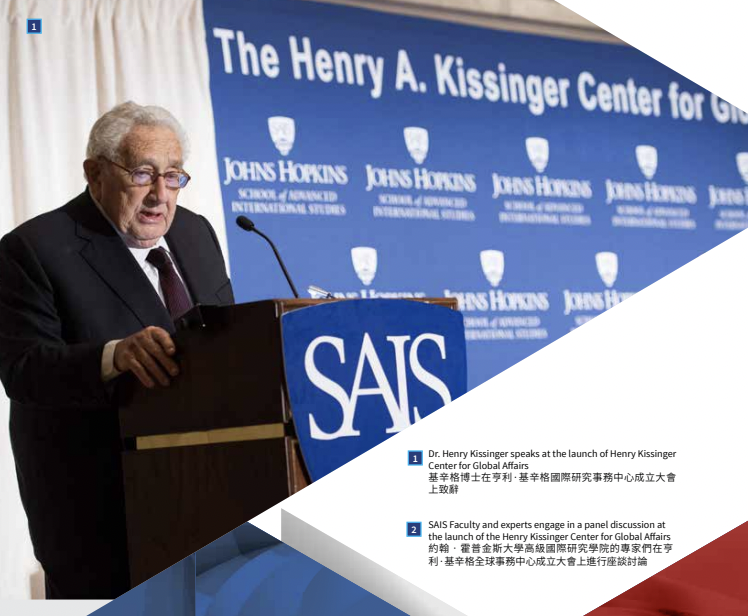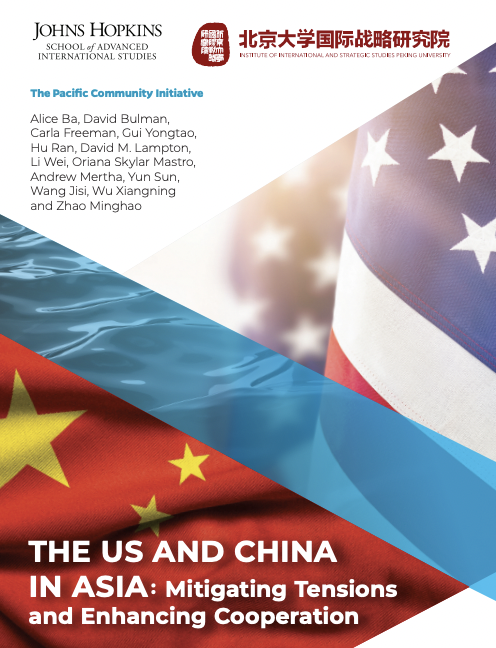Lt. Col. Alexander Vindman served as a Senior Fellow at a graduate school receiving funds from and collaborating with a controversial Chinese Communist Party influence group flagged by the U.S. State Department for its efforts to infiltrate American politics, The National Pulse can reveal.
Vindman, who testified during President Donald Trump’s first impeachment trial, served as a Senior Fellow at Johns Hopkins University’s Paul H. Nitze School of Advanced International Studies (SAIS) from September 2020 to August 2021.
As a Foreign Policy Institute (FPI) Senior Fellow, Vindman also participated in several events promoting his book “Here, Right Matters” with SAIS during his fellowship.
SAIS, however, has accepted funding from the China-United States Exchange Foundation (CUSEF) and sent its students on trips to China sponsored by the foreign influence group.
CUSEF functions as part China’s “United Front,” which the federal government identifies as Beijing’s covert operation “to co-opt and neutralize sources of potential opposition to the policies and authority of its ruling Chinese Communist Party” and “influence foreign governments to take actions or adopt positions supportive of Beijing.”
The U.S. State Department compares the United Front to the Chinese regime’s “magic weapon” to advance its preferred policies by infiltrating American politics, media, and academia.
In 2017, SAIS announced a new endowed professorship in its China Studies department and launched a new research project called the Pacific Community Initiative, which aims to examine “what China’s broader role in Asia and the world means for its neighbors and partners.” Both projects were sizably funded by CUSEF, as flagged by Foreign Policy.

Beyond accepting funding from CUSEF, which has used similar tactics on Western journalists in exchange for “favorable coverage” of the Chinese Communist Party, SAIS has also sent its students on trips to China.
“In addition to partnering for the production of multiple China Forums over the years, CUSEF sponsors and organizes groups of Johns Hopkins SAIS graduate students to visit China,” explains the CUSEF website, which as an entire page dedicated to the group’s collaboration with SAIS.
“During the most recent trip from November 17, 2017 to November 27, 2017, twenty students gained better understand the country’s energy transition. During the 10-days’ visit, the professors and the students visited Beijing, Shenzhen, Changzhou and Shanghai to engage in substantive meetings,” added the influence group. The National Pulse has previously exposed students taking CUSEF-sponsored trips praising China as an “amazing communist country” superior to the U.S. upon return.

CUSEF and SAIS have also co-authored academic reports, including “The U.S. and China in Asia: Mitigating Tensions and Enhancing Cooperation” in 2019, the year before Vindman joined the school. The work “focuses on how the United States and China can mitigate tensions and enhance cooperation in key areas of interaction, thereby establishing a foundation for a broader community initiative in the future,” according to its intro.

SAIS has also co-hosted events with CUSEF, according to its 2016 annual report.
“In March 2016, CUSEF collaborated with Johns Hopkins School of Advanced and International Studies (SAIS) to co-host a public forum titled “China’s New Economic Plans: Implications for China, Asia, and the Global Economy”. Professor Liu Mingkang, former Chairman of the China Banking Regulatory Commission, was the keynote speaker,” notes the document.
Amidst Russia’s ongoing invasion of Ukraine, Vindman has consistently called for the U.S. to play a larger role in the conflict, despite polls revealing most Americans feel otherwise.

